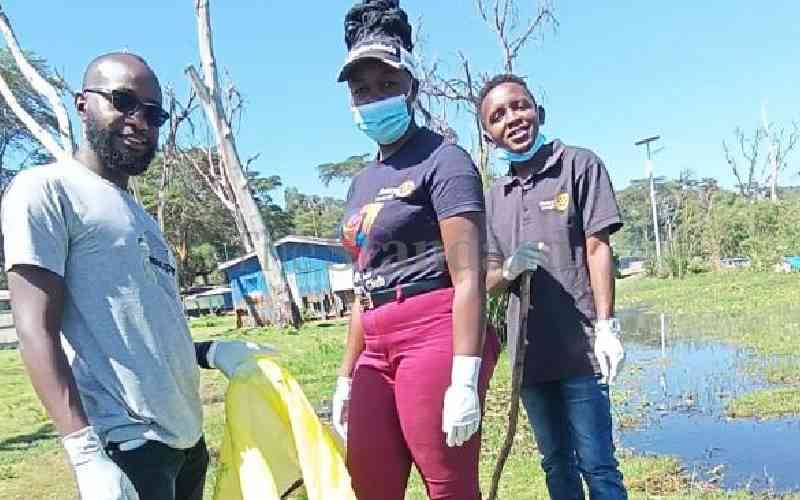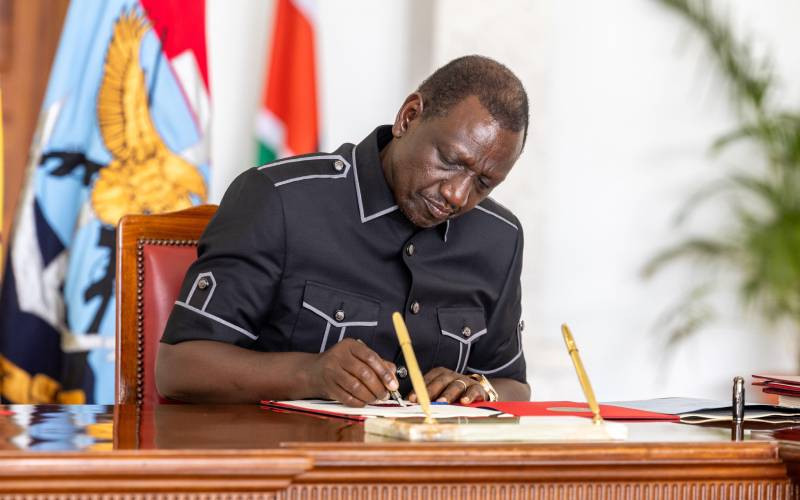NAIROBI: Mrs Mulei, my friend from Makueni County, recently suffered huge losses on her farm when elephants paid her an uninvited visit. Under the new Wildlife Conservation and Management Act, 2013, she will submit a claim to the County Wildlife Conservation and Compensation Committee. After verification of her claim, she will be compensated at the prevailing market rates.
According to the same Act, families of those who lose their lives receive a compensation of Sh5 million while injuries resulting in permanent disability result in a payment of Sh3 million. Those with lesser injuries are paid a maximum of Sh2 million depending on the severity.
Whereas this compensation provisions in the Act are a welcome legal remedy for victims, we must do everything in our power for fewer people to resort to them. Compensation essentially means the human-wildlife conflict has resulted in casualties!
This financial year alone, Sh2.8 billion is needed for wildlife compensation claims. But even when the funds are paid, they can never replace loved ones or fully restore productivity. It is therefore critical to pursue innovative and even radical ways of better human-wildlife co-existence.
A starting point is for the Treasury to budget for pre-emptive action that will harmonise this co-existence further.
Assuming that all the claimants will eventually be paid the Sh2.8 billion needed this financial year, imagine what the same amount can do towards better harmony between humans and wildlife.
One of the key reasons why elephants wandered into the Mulei’s farm is because drought keeps pushing them further from Tsavo West National Park in search of food. To decisively address such climate change-induced disaster, Kenya must join other African countries in ensuring the upcoming Climate Talks in Paris will result in water-tight funding agreements. More funds will ensure we do more to restore ecosystems that support our wildlife.
More funds will also help communities adjacent to wildlife-protected areas to better protect their farms and livestock. We must increase on protective measures that have already worked like chilli and tobacco deterrents; early warning systems such as watchtowers plus stronger fencing. Moreover, such funds can be channelled towards livelihood enhancing measures like revamping ecotourism and planting crops that are less desirable to wildlife.
We should however not peg all these critical preventive measures on uncertain global monies that may or may not come. If the Exchequer can afford to set aside about Sh2.8 billion needed for compensation this year, then I suggest that a substantive amount be set aside for action that will reduce the need for compensation.
Actually, our primary focus should be on enhancing human-wildlife harmony as opposed to managing the consequences of human-wildlife conflict. Think green, act green!
 The Standard Group Plc is a
multi-media organization with investments in media platforms spanning newspaper
print operations, television, radio broadcasting, digital and online services. The
Standard Group is recognized as a leading multi-media house in Kenya with a key
influence in matters of national and international interest.
The Standard Group Plc is a
multi-media organization with investments in media platforms spanning newspaper
print operations, television, radio broadcasting, digital and online services. The
Standard Group is recognized as a leading multi-media house in Kenya with a key
influence in matters of national and international interest.
 The Standard Group Plc is a
multi-media organization with investments in media platforms spanning newspaper
print operations, television, radio broadcasting, digital and online services. The
Standard Group is recognized as a leading multi-media house in Kenya with a key
influence in matters of national and international interest.
The Standard Group Plc is a
multi-media organization with investments in media platforms spanning newspaper
print operations, television, radio broadcasting, digital and online services. The
Standard Group is recognized as a leading multi-media house in Kenya with a key
influence in matters of national and international interest.









